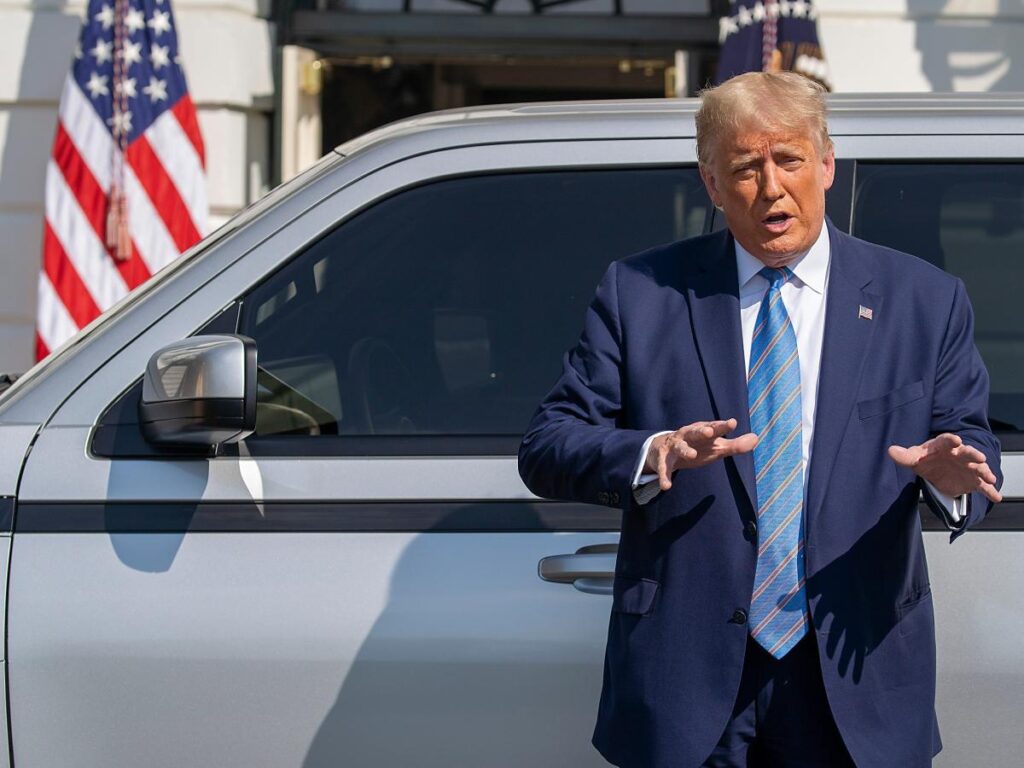On Wednesday, the Biden administration approved California’s ambitious plan to ban gas-powered cars by 2035, a significant milestone in the ongoing battle over environmental regulations and the future of electric vehicles (EVs). This decision comes amidst prior promises from President-elect Donald Trump to rescind California’s authority to impose strict limits on tailpipe emissions. The state has historically been a frontrunner in environmental policies, and this move is a clear indication of the administration’s commitment to combating climate change while shaping the auto industry’s transition towards electric vehicles. Given that California accounts for approximately 11% of the auto market in the U.S., its decision is poised to have considerable ripple effects across the country.
The approval from the Environmental Protection Agency (EPA) represents a strategic effort to safeguard California’s stringent pollution limits amid Trump’s anticipated rollbacks on federal incentives for EVs. Automakers recognize the disproportionate influence California has, as evidenced by the near 40% share of EVs and hybrids in the state’s car sales during the first half of 2024. Eleven other states, along with Washington D.C., have adopted similar regulations to phase out gas-powered cars, illustrating a broader national shift toward zero-emissions vehicles. By 2026, California expects at least 35% of new vehicle sales to be electric, with even stricter guidelines following in subsequent years, setting a benchmark for other states to follow in the quest to mitigate greenhouse gas emissions.
Despite general support among automakers for easing emissions regulations, tensions remain high. The Alliance for Automotive Innovation, which represents most automotive manufacturers, has asked for a national standard to ease compliance burdens. However, the ongoing tensions are exacerbated by the political landscape, as Trump and conservative factions have framed the discussion around EVs as a battle against the loss of traditional gas-powered vehicles. Such a narrative has emerged during a period of decreasing demand in the EV market, prompting automakers to adjust their strategies—including potential layoffs and reduced production.
Environmental experts and policy analysts acknowledge that the push toward zero-emissions vehicles is likely to persist regardless of political changes, albeit at a potentially slower pace should federal incentives be rescinded. Automakers express concern about market stability as they navigate the evolving regulations. The urgency to respond to international pressure to reduce carbon emissions, especially against the backdrop of fierce competition from countries like China, is an influencing factor for U.S. manufacturers to maintain a focus on EV development.
In light of potential shifts in federal policy, California Governor Gavin Newsom has initiated measures to “Trump-proof” state-level environmental regulations. This includes plans to reinstate consumer rebates for EV purchases if federal incentives are eliminated and a substantial investment in EV charging infrastructure is set to be rolled out over the next four years. The state has also called for legislative protections to prepare for possible legal battles against Trump’s administration should he attempt to rescind California’s pollution waivers. Newsom’s proactive approach underscores California’s resilience in forging ahead with its climate initiatives, regardless of the political climate at the federal level.
The legal landscape surrounding these regulations may evolve rapidly, with expectations that Trump will encounter significant hurdles should he attempt to overturn California’s emissions standards. Historically, California has maintained its authority to enforce strict pollution guidelines due to its unique air quality challenges, supported by decades of EPA approvals. However, recent Supreme Court considerations regarding the legal standing of fossil fuel producers to challenge this authority may influence future rulings. Amid these uncertainties, automakers are likely to temper their EV investments and demand clarity in regulatory environments as they adapt to the prevailing market dynamics. Ultimately, while the transition to a greener automotive future appears inevitable, the path forward will be heavily influenced by political agendas, legal battles, and evolving consumer demands.

